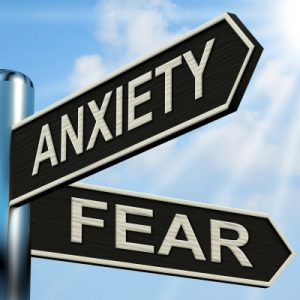Overeating When Nervous: How To Cope
 Emotional eating takes on many different forms.
Emotional eating takes on many different forms.
Some people eat when they’re depressed, other when they’re stressed and still others tend to overeat when they’re nervous or anxious.
Anxiety can be a trigger for emotional eating because it creates extremely uncomfortable sensations in both the body and brain, which can be tempered by the pleasures of food.
The stress hormone
When you’re under chronic stress, your body releases more cortisol, which is known as the “stress” hormone. Cortisol can trigger cravings for salty and sweet foods, which give you a quick burst of energy and sense of pleasure. Yet these types of foods usually then trigger more cravings, setting up a cycle of overeating that is hard to stop.
Record patterns
Getting a handle on overeating when you’re nervous can be difficult, but it starts with recording your patterns and habits. Try keeping a food journal in which you write down the feelings, experiences, or people that seem to trigger episodes of nervous eating. Do certain situations make it worse or better? What feelings generally come before an episode? Tracking these triggers will help you understand why you turn to food when you’re feeling anxious.
Stress management
Coping with emotional eating that’s related to stress involves learning how to manage stress effectively. It’s imperative that you find you ways to relieve tension in healthy ways, like adopting a regular meditation practice, journaling your feelings, exercising, using aromatherapy or learning deep breathing techniques that help calm the body and mind. Sleep also plays an important role in cortisol management, so make sure you’re not only getting enough sleep, but that it’s quality, uninterrupted sleep.
Social situations
If you tend to overeat in social situations due to anxiety, employ the “take 5” rule: before you indulge, put off eating for five minutes and don’t give in to the craving. This gives you the opportunity to notice what’s going on, be present with your feelings and make a different decision that will empower your health and well-being.
Source: Help Guide
 Eating Disorder Self Test. Take the EAT-26 self test to see if you might have eating disorder symptoms that might require professional evaluation. All answers are confidential.
Eating Disorder Self Test. Take the EAT-26 self test to see if you might have eating disorder symptoms that might require professional evaluation. All answers are confidential.